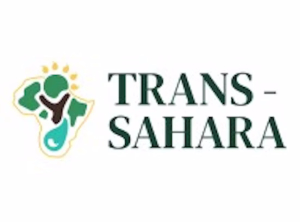
HORIZON EUROPE TRANS-SAHARAN Project: New WEFE Nexus-based approaches for agroforestry management in the Greater North Africa region
- Type Project
- Status Signed
- Execution 2024 -2027
- Assigned Budget 5.489.475,00 €
- Scope Europeo
- Main source of financing Horizon Europe 2021-2027
- Project website Proyecto TRANS-SAHARA
The impacts of climate change are negatively affecting water, energy, and food security in Africa.
The EU-funded TRANS-SAHARA project will use agroforestry systems to strengthen the climate change resilience of vulnerable African communities. It will apply the Water-Energy-Food-Ecosystems Nexus (WEFE) approach to increase water security through community-co-designed interventions.
The project will introduce innovations such as advanced measurement tools, environmental and socioeconomic impact assessments, nature-based strategies for sustainable resource use, and new business models to support the long-term livelihoods of local communities. Large-scale pilot demonstrations will be conducted in Ethiopia, Ghana, and Tunisia to evaluate these approaches.
The results are expected to improve the availability of agroforestry data, increase crop yields and farmers' incomes, create new carbon sinks through ecosystem regeneration, and facilitate policy dialogue for climate change mitigation.
TRANS-SAHARA will establish an innovative approach to harnessing agroforestry systems to support African communities in their fight against climate change. This innovative approach is based on the well-established water-energy-food-ecosystems (WEFE) nexus, which emphasizes the primacy of ensuring water security when designing, installing, and managing agroforestry systems. The translation of this conceptual approach to agroforestry management into real-world applications is supported by a number of technical and non-technical innovations. These include cutting-edge measurement methods and tools to accurately assess environmental and socioeconomic impacts, scalable nature-based intervention strategies to facilitate the sustainable exploitation of natural resources, and novel business models designed to secure the long-term livelihoods of local communities involved in agroforestry practices.
The effectiveness of the new approach and supporting innovations will be rigorously tested and validated through a series of large-scale pilot demonstrations in key locations across Africa, including Tunisia, Ghana, and Ethiopia. Novel community-led engagement methods are used to support the co-design of the participants and ensure deep buy-in for the innovation within local communities. The expected outcomes will contribute to closing agroforestry data gaps in Africa, increasing crop yields, doubling farmers' annual incomes, and creating new carbon sinks in previously degraded areas.
An ambitious post-project exploitation plan, implemented in partnership with EU and African policymakers and civil society groups, envisions the immediate and widespread adoption of the resulting innovations across all African Union (AU) member countries and beyond by 2030. Those who adopt the innovation will significantly improve their communities' resilience to the threats posed by the climate emergency and stimulate highly sustainable socioeconomic development across their region.






